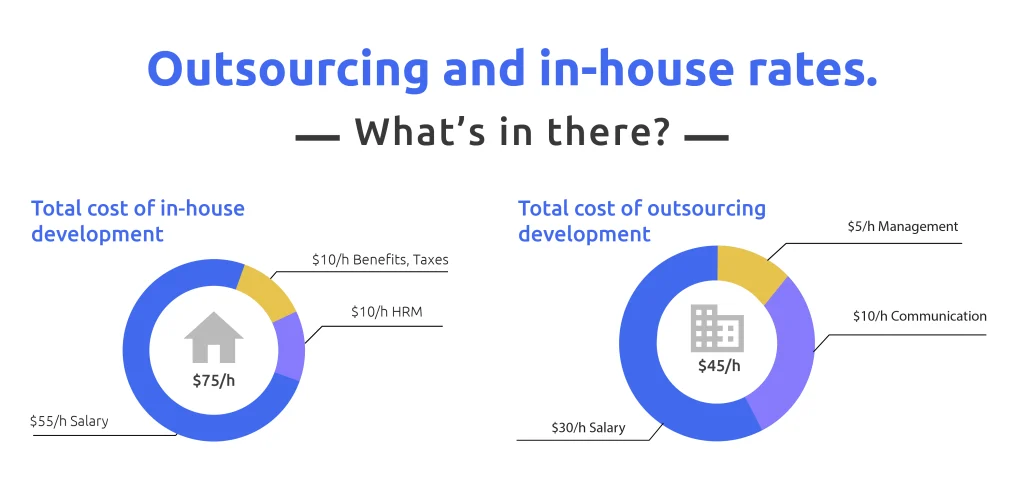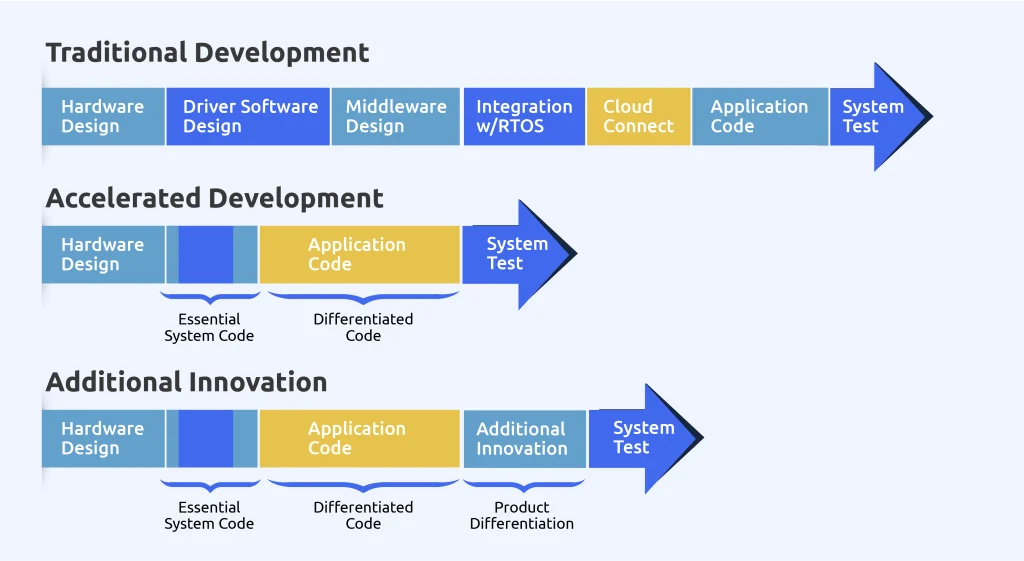
Top 12 Software Development Methodologies for Effective Project Management
As digital transformation accelerates, businesses are increasingly committed to developing scalable and feature-rich software solutions that address both internal and

Accelerate your time-to-market with unmatched quality through our subscription-based development services

Accelerate your time-to-market with unmatched quality through our subscription-based development services
Software Development as a Subscription

Security as a Service

Launch Your MVP in 90 Days

Building secure decentralized solutions

Modernize Your Software with AI

Developing smarter software systems


Accelerate your time-to-market with unmatched quality through our subscription-based development services

Accelerate your time-to-market with unmatched quality through our subscription-based development services
Software Development as a Subscription

Security as a Service

Launch Your MVP in 90 Days

Building secure decentralized solutions

Modernize Your Software with AI

Developing smarter software systems


Accelerate your time-to-market with unmatched quality through our subscription-based development services

Accelerate your time-to-market with unmatched quality through our subscription-based development services
Software Development as a Subscription

Security as a Service

Launch Your MVP in 90 Days

Building secure decentralized solutions

Modernize Your Software with AI

Developing smarter software systems


Accelerate your time-to-market with unmatched quality through our subscription-based development services

Accelerate your time-to-market with unmatched quality through our subscription-based development services
Software Development as a Subscription

Security as a Service

Launch Your MVP in 90 Days

Building secure decentralized solutions

Modernize Your Software with AI

Developing smarter software systems


Accelerate your time-to-market with unmatched quality through our subscription-based development services

Accelerate your time-to-market with unmatched quality through our subscription-based development services
Software Development as a Subscription

Security as a Service

Launch Your MVP in 90 Days

Building secure decentralized solutions

Modernize Your Software with AI

Developing smarter software systems

Before beginning a new project, companies have a lot to think about. One of the most crucial decisions is whether to use an in-house team for software development or utilize the services of an external partner. The difference between the two represents a fundamental choice that can greatly impact the operations of the company, its growth trajectory, as well as its customer service.
The decision-making process surrounding in-house vs outsourcing software development requires careful consideration of various factors, ranging from budget availability and project requirements to long-term strategic goals. While in-house development requires utilizing the skill set of your internal team, outsourcing involves hiring a team of professionals by partnering with a third-party company.
Both approaches have their advantages and drawbacks and require in-depth analysis of the million-dollar question, which is in-house vs outsourcing software development. The answer to this question mostly depends on the project’s scope, the company’s resources, and the skill set required for the project development. However, there are numerous other factors for business leaders to think about before finalizing a decision.
The most important element for business leaders to decide between inhouse vs outsourcing is to have a clear idea and vision for the intended product. Once they have complete knowledge about the scope and requirements, and have the data of available resources, it’s then the right time to start exploring the advantages and disadvantages of both approaches.
To make sure that you are making the best possible decision for your business project, it’s essential to consider a few important factors before choosing between in-house and outsourced software development.
Below-given are three key factors to consider before you jump to any conclusion:
Depending on the scope and complexity of your project, getting software development done from an in-house team can be more costly compared to outsourcing. Due to fewer overhead costs, the outsourcing providers often present low-priced development packages to the clients, which results in better quality work at a fraction of the in-house price.

Furthermore, with outsourcing, businesses and startups get the option to choose from a large pool of potential developers, regardless of geographical location. For instance, companies like Vaival Technologies offer IT Staff Augmentation services to businesses all over the world. They offer skilled individuals for various technological domains, helping businesses, startups, and enterprises of all sizes with their custom software development needs. Those looking to reduce their development cost can opt for more affordable markets such as Latin America or Asia in search of their professionals.

Source: FAV PNG
There’s always a timeline associated with software development, whether it’s carried out with an in-house team or an outsourced one. Internal teams usually take longer to develop projects as there is often bureaucracy or other factors involved, however, outsourcing can significantly reduce project completion timeline as external providers use their defined existing infrastructure.
But, there are instances where investing in an in-house team can prove to be more time-effective provided the company or startup remains flexible and adaptable to market trends, and demands.
Keep the following three approaches in mind while considering the time-to-market factor:

Each of the above-mentioned approaches may operate differently depending on the scope and complexity level of your product. In any case, In-house or outsourced, a process developed with thorough planning is important in meeting the defined timelines and launch dates.
Quality assurance is an important aspect of software development. High standards of quality assurance ensure that your product performs as intended while meeting customer requirements and expectations.
Whether you choose in-house or outsourced software development, it is important to design proper performance metrics for evaluation of the usability and performance of the final product. A defined set of metrics for performance and client satisfaction is important for any type of software development project.
This ensures that you provide the best user experience to your customers by adjusting or tweaking the product as required. Outsourcing gives you the advantage of having access to a diverse talent pool of QA testers. On the other hand, with an in-house team, you have more control over the process and greater knowledge of how the product is being developed and tested, ensuring a higher level of quality assurance and better client satisfaction.
In-house software development refers to the practice of developing a software product within a company’s premises, usually with its resources. This traditional approach to software development is a great option for those who want higher control over their product development and its process.
This way of development offers access to an immediate pool of talent and resources with increased visibility into the development operation. Businesses and startups that invest in an in-house team for software development often develop products quickly and at low costs.
It requires a lot of time, resources, and investments to build an in-house team of developers. Moreover, with an in-house team, a company must have access to the necessary technology and tools needed for software development.
Bureaucracy is another problem that bogs down the productivity of an in-house team, leading to slower turn-around times on development projects.
Choosing to develop a product with the help of an in-house team offers organizations a myriad of opportunities and challenges. Let’s explore the pros and cons of in-house software development to understand the positives and negatives of this approach.
Let’s explore the advantages and drawbacks of software outsourcing and have a clear understanding of what businesses can encounter while opting for this approach.
Advantages | Disadvantages |
Access to a global talent pool with specialized and personalized expertise | Communication gap due to time zone discrepancies or language barriers |
Offers low-cost product development due to reduced overhead and labor cost | Potential quality control issues |
Offers higher scalability, development efforts can be scaled up or down as needed | Dependency on external vendors or individuals, which may impact control |
Allows businesses to allocate resources more strategically | Increases risk of intellectual property theft or loss of sensitive data |
Offers faster time-to-market, leveraging the external vendor’s existing infrastructure and expertise | Lack of direct oversight and visibility into the product development process |
Returning to our initial considerations, it’s clear that both approaches have advantages and disadvantages. Budget, deadlines, project scope, and team size are all important factors to consider when deciding whether to go for in-house or outsourced software development. Let’s revisit each consideration and who wins based on the highest potential of achieving project success:
Returning to our initial considerations, it is quite clear that both approaches offer their own sets of advantages and disadvantages. Factors such as budget constraints, project timelines, scope, and team dynamics play a key role in the decision-making process between in-house vs outsource software development.
Vaival Technologies has over a decade-long experience of working with remote partners, offering custom software development services to organizations around the world.
We are known for our effective and transparent communication, quality delivery, efficient and fast-paced work, and silicon-valley type thought process. Organizations that have selected us as their third-party vendors for software development have achieved unparalleled success in their offerings with a long list of satisfied customers.
Startups stand to gain from establishing an internal team if they expect large-scale growth in terms of expanding their product offerings. While, outsourced services prove to be more beneficial for launching new products in a short time span, especially when there is a need for a diverse talent pool.
It’s essential to carefully consider the important factors when evaluating your choices to determine the most suitable approach for your project between inhouse vs outsourcing. Only through detailed consideration can you make a well-informed decision and settle the debate between in-house software development vs outsourcing.

With 6+ years of experience in crafting content and copies in the IT field, Sara started loving technology. Sara excels in creating extensively researched articles. What makes her unique is her approach to break down complex terms into easy-to-understand for both novices and experts. Her work adheres to E-E-A-T (Experience, Expertise, Authoritativeness, Trustworthiness) and Google's guidelines, ensuring readers-first content. Sara plays with words and each word is penned down magically to hook readers with the deep concepts of technology. Her aim as an author is to deliver informative, engaging, and jargon-free pieces for readers and for engines to optimize for peak performance. By transforming sophisticated ideas into clear, concise communication, Sara helps businesses and readers alike navigate the digital landscape with confidence and clarity.

As digital transformation accelerates, businesses are increasingly committed to developing scalable and feature-rich software solutions that address both internal and

The history of software development spans centuries. The software development dates back to the 1950s when the first computers were

In today’s cutthroat and ever-changing business environment, organizations tirelessly seek methods to optimize their processes, reduce expenses, and keep their
Book a Free Consultation
We're eager to explore how we can improve your software development projects with our creative solutions and strategic insights.
Software Development as a Service, provided by Vaival, encompasses a full spectrum of software development services throughout the entire software lifecycle. This includes design, architecture, development, testing, quality assurance, production support, and managed services.
SDaaS offers several advantages:
Vaival utilizes a robust tech stack that includes programming languages such as Python and JavaScript, frameworks like React for front-end development, and Node.js for backend operations, as well as specialized technologies in Web3, blockchain, and AI/ML.
Yes, we have worked with all kinds of businesses from startups to enterprises in developing their software and IT infrastructure. Our SDaaS solution is perfect for businesses who want to scale their project demands fast without breaking the bank or spending weeks on hiring.
No, there isn’t any difference. All plans have the same rigorous QA process in place, ensuring every project is of top-notch quality.
Click on the button below to get started.
Technologies
Insights
All Rights Reserved © 2024 Vaival Technologies